How to Install SQL Express 2014 for DriveWorks Pro
DriveWorks Pro supports Microsoft SQL Express to be used for hosting the databases of DriveWorks Shared Groups. This guide provides a step-by-step process of installing Microsoft SQL Express 2014 on a Windows Server 2008 R2 server for use with DriveWorks Pro.
Assumptions
- This is the first installation of Microsoft SQL Express 2014 and no other versions of Microsoft SQL have been installed on the machine.
- This installation of Microsoft SQL Express 2014 is only for use with DriveWorks Pro.
- All software prerequisites are installed and all system requirements are met.
Download
Download SQL Express
In this guide, we will install SQL Express 2014 WT (With Tools) 64-bit.
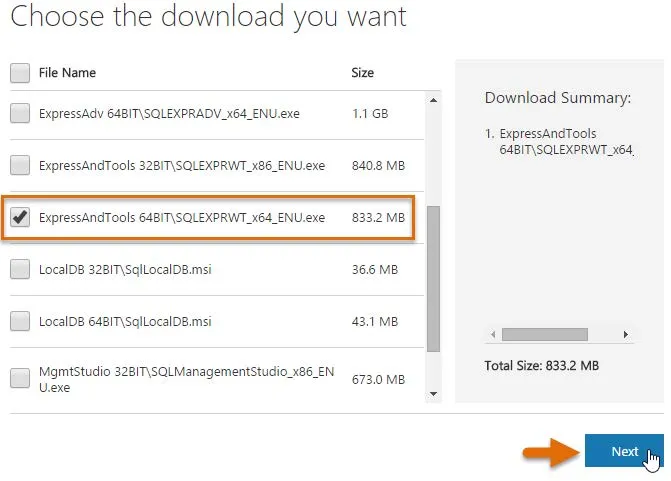
Note: SQL Express 2014 Advanced can also be installed for use with DriveWorks Pro.
Installation
- Once the installation executable has been downloaded, right mouse click on the executable and run as an administrator. This will extract the installation files and the SQL Server Installation Center window will open shortly after. If the SQL Server Installation Center window does not open automatically, right mouse click on the SETUP.EXE in the extracted files and run as administrator.
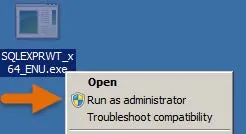
Tip: Ensure that you have full administrative rights to the server system, that User Account Control settings are set to “Never Notify” and that your antivirus software is temporarily turned off. - With the SQL Server Installation Center window open, click on Installation then click on New SQL stand-alone installation or add features to an existing installation.
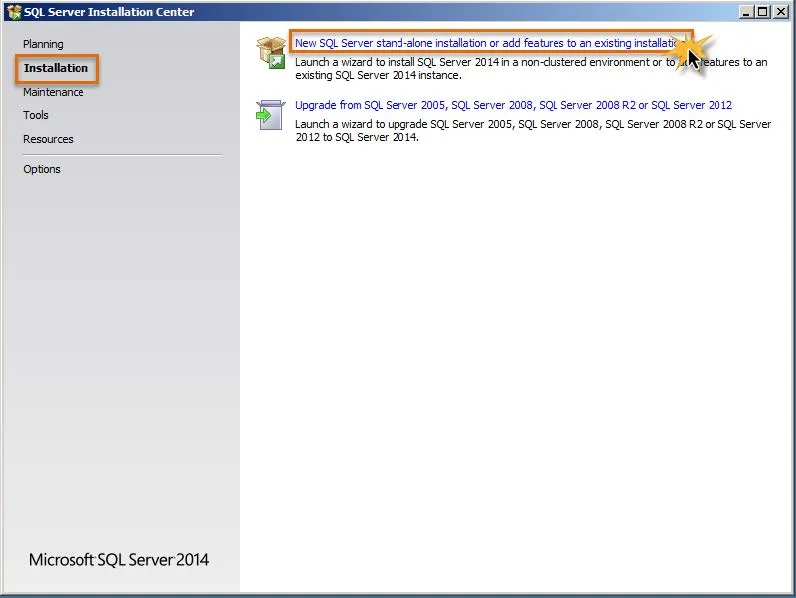
- Read the License Terms. Select I accept the license terms. Click Next.
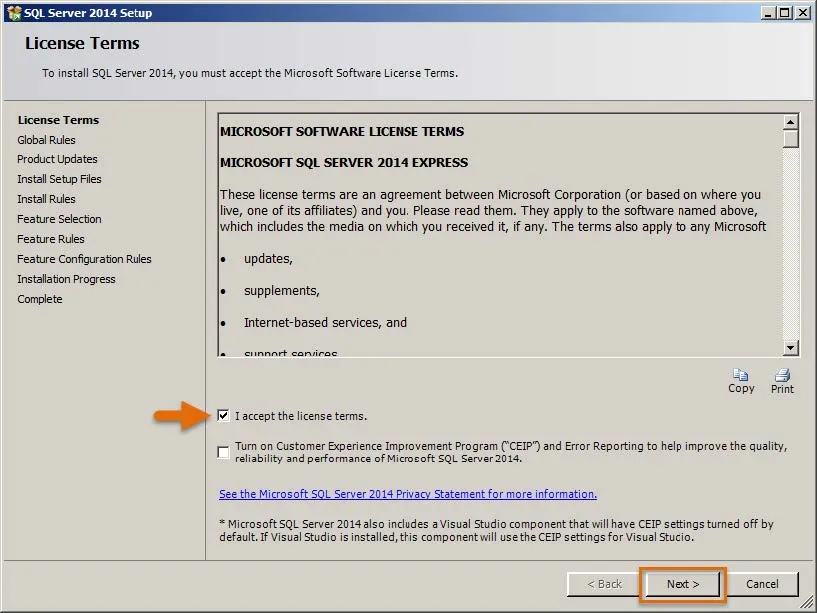
- If the Global Rules wizard does not identify any problems, the wizard will automatically skip to the Product Updates section (step 5 below). However, this window will appear if there is an issue. You must correct the problem of any rules that did not pass and click Re-run. When finished, click Next.
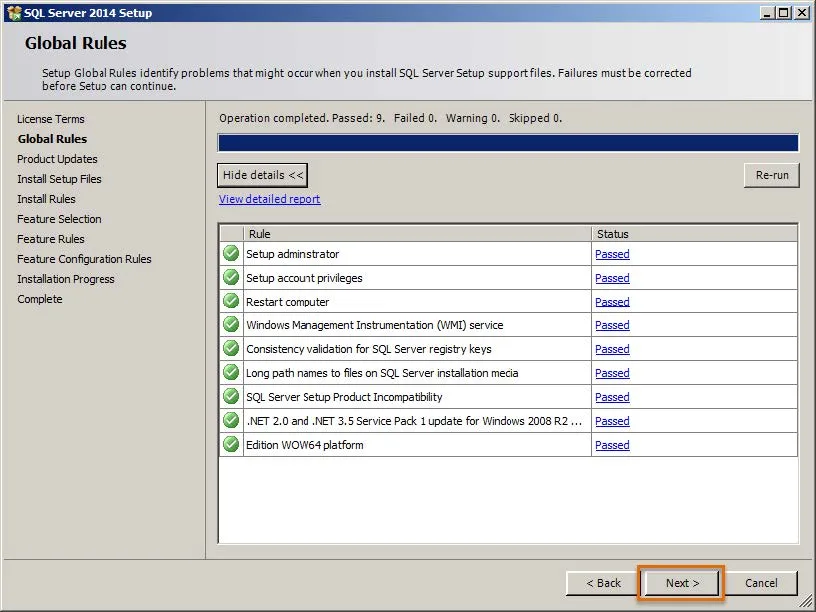
- The Product Updates window will automatically be skipped if there are no updates to apply. Otherwise, apply any available updates.
- If the Install Rules wizard does not identify any problems, the wizard will automatically skip to the Feature Selection section (step 7 below). However, this window will appear if there is an issue. You must correct the problem of any rules that did not pass and click Re-run. When finished, click Next.
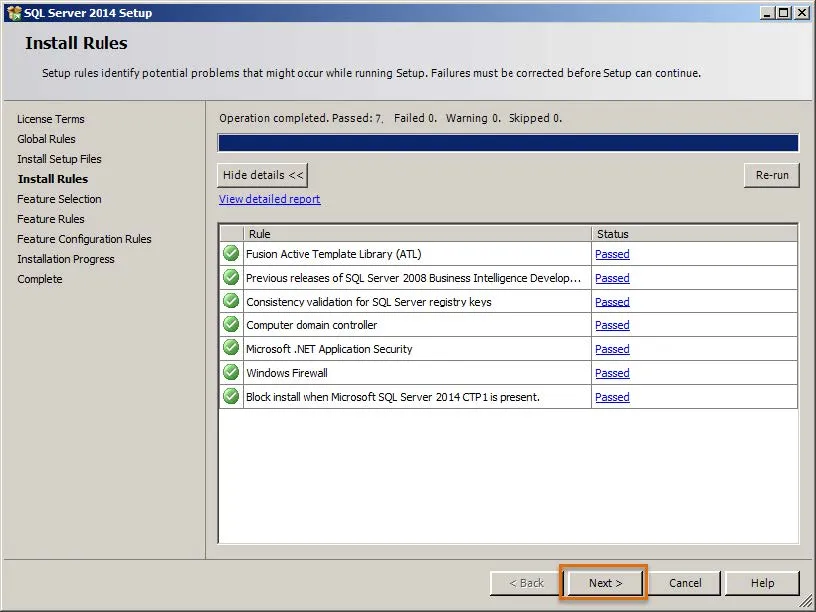
- In the Feature Selection window, select the following features:
- Database Engine Services
- Client Tools Connectivity
- Client Tools Backwards Compatibility
- Management Tools - Basic
- Management Tools - Complete
- Click Next.
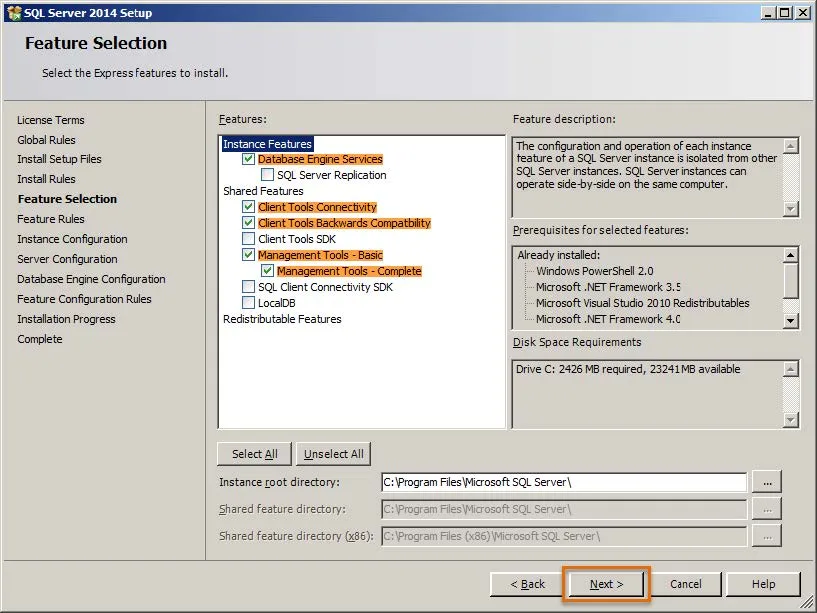
- If the Feature Rules wizard does not identify any problems, the wizard will automatically skip to the Instance Configuration section (step 9 below). However, this window will appear if there is an issue. You must correct the problem of any rules that did not pass and click Re-run. When finished, click Next.
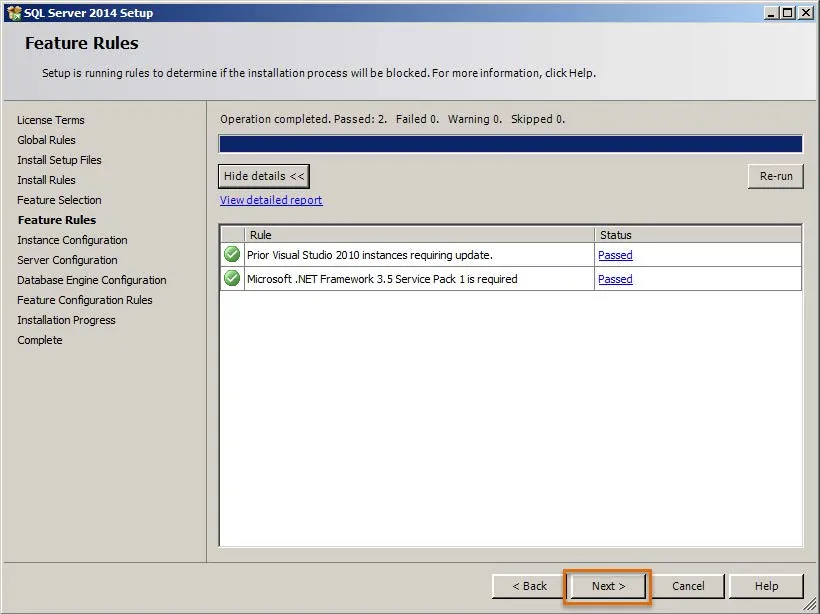
- Select Default instance and click Next.
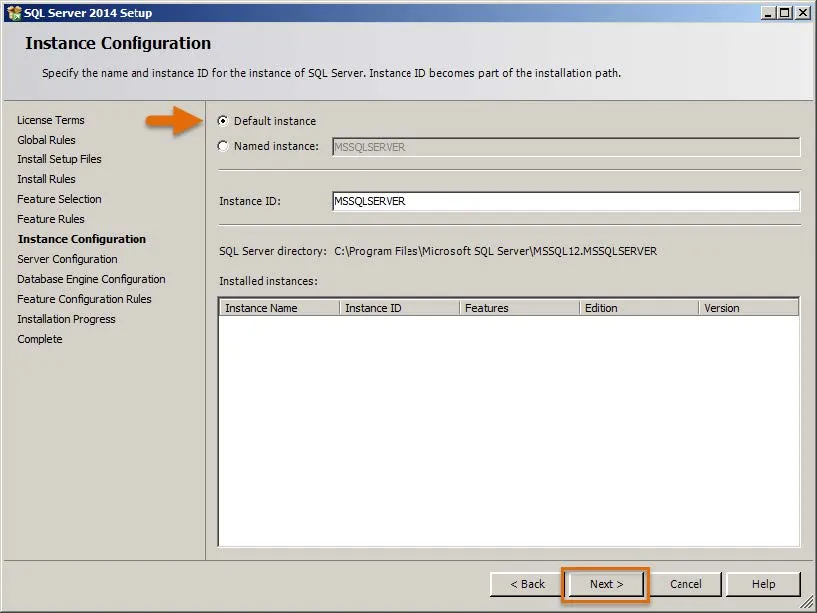
- In the Server Configuration section, under the Service Accounts tab, select the following Account Names:
- For SQL Server Database Engine - select NT Service\MSSQLSERVER
- For SQL Server Browser - select NT Authority\LOCAL SERVICE
*Set all Startup Types to Automatic. Click on the Collation tab and continue to step 11 below.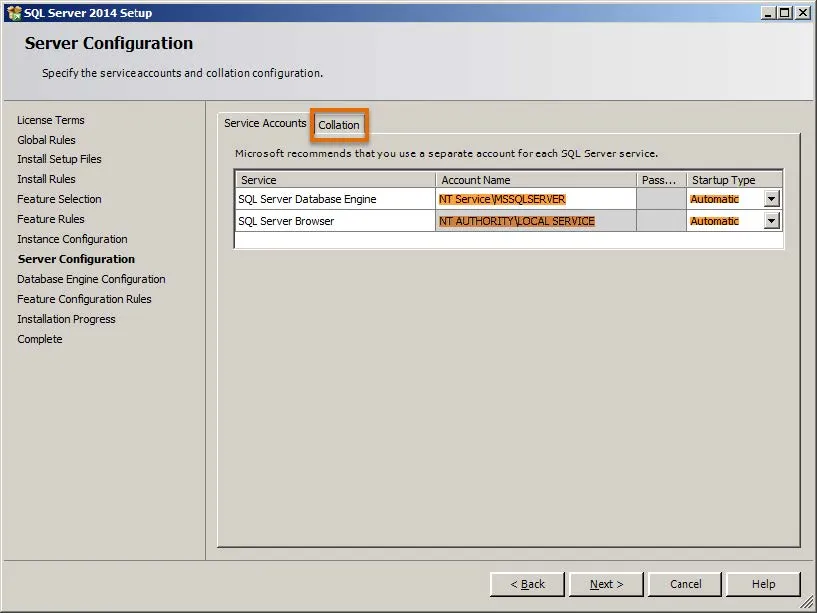
- Under the Collation tab, click Customize...

Select the Windows collation designator and sort order.
Select Latin1_General under the Collation Designator dropdown box.
Click OK.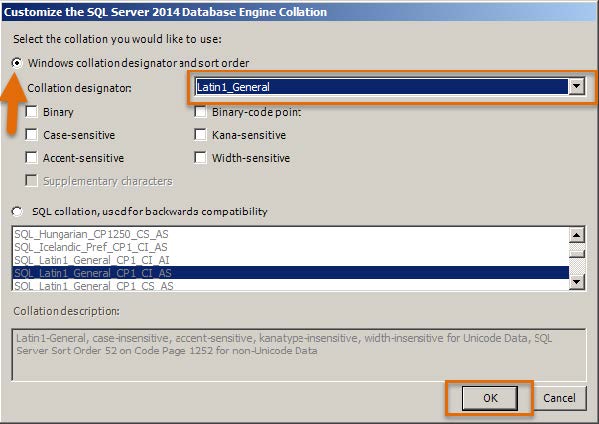
Back in the Collation tab, Latin1_General_CI_AI is now selected. Click Next.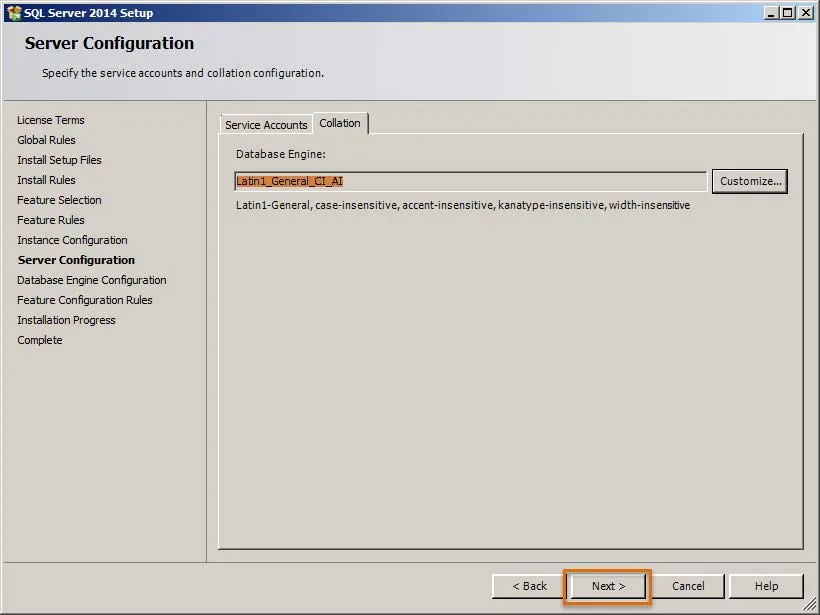
- Select the Mixed Mode (SQL Server authentication and Windows authentication). Enter and confirm a strong password for the SQL Server system administrator 'sa' account.
Your choice here: under Specify SQL Server administrators, click on Add Current User or click Add... to enter domain users and or groups that can have access to administrate SQL.
Click Next when finished.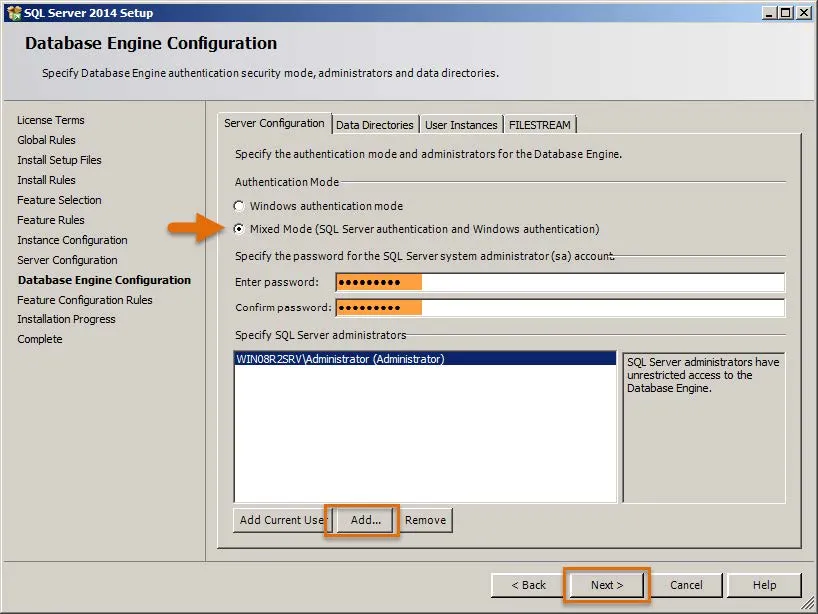
- If the Feature Configuration Rules wizard does not identify any problems, the wizard will automatically skip and will install the software (Installation in Progress section). However, the Feature Configuration will appear if there is an issue. You must correct the problem of any rules that did not pass and click Re-run. When finished, click Next.
- Once the installation completes successfully, click Close.
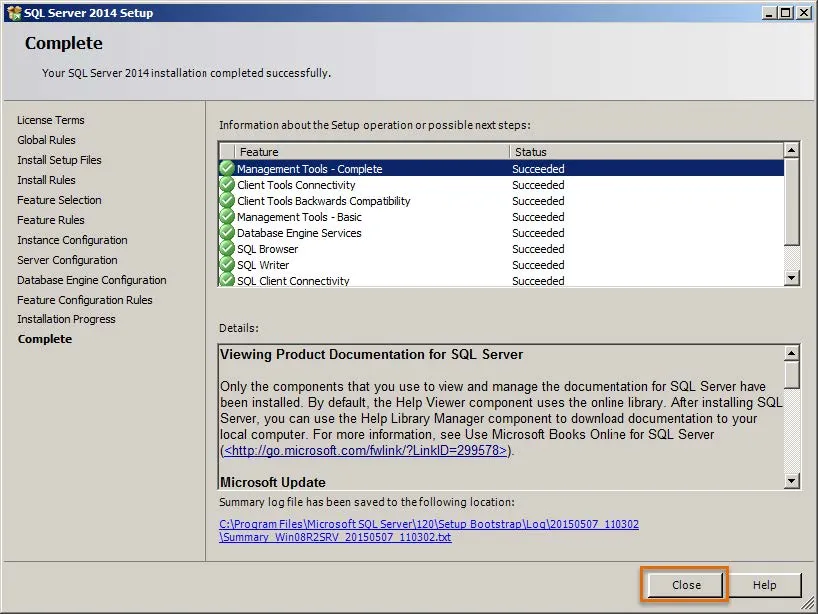
- Your installation of Microsoft SQL Express 2014 for DriveWorks Pro is now complete! You can now close the SQL Server Installation Center.
- Enable remote TCP/IP connections.
- Navigate: Start > All Programs > Microsoft SQL Server 2014 > Configuration Tools > Open SQL Server 2014 Configuration Manager.
- Once the window opens expand SQL Server Network Configuration > select Protocols for MSSQLSERVER > Right mouse click on TCP/IP > Click Enable. And OK on the message stating that the server needs to be restarted for changes to apply.
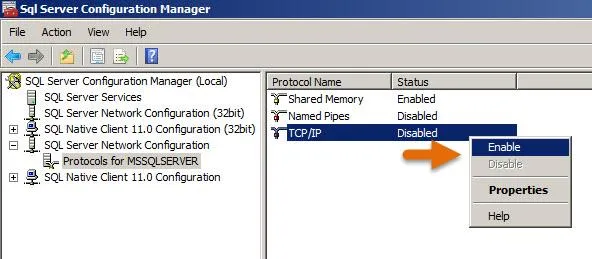
- Restart the MSSQLSERVER service by selecting SQL Server Services > Right mouse click on SQL Server (MSSQLSERVER) > select Restart.
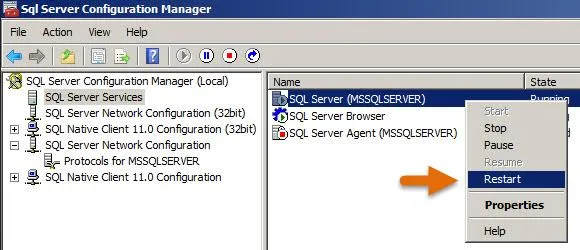
- The SQL installation is now complete! Close the SQL Server Configuration Manager and proceed to connect DriveWorks Pro Server to this installation of SQL.
For more information on connecting DriveWorks Pro Server to Microsoft SQL, please visit the DriveWorks help site.
More DriveWorks Tutorials
Managing Configurations with DriveWorks and SOLIDWORKS
MyDriveWorks: A New DriveWorks Community Platform
Do You CPQ? Configure, Price & Quote with DriveWorks
DriveWorks Pro Admin Stages Explained – Specifications
DriveWorks Pro Admin Stages Explained – Specification Control

About Francisco Guzman
Francisco Guzman is the PDM Technical Support Lead at GoEngineer, and is pursuing his degree in mechanical engineering at the University of Utah. In addition to providing guidance and support to SOLIDWORKS and SOLIDWORKS PDM customers, Francisco also provides support for DriveWorks design automation. He won the world-wide DriveWorks reseller CPD contest as the best DriveWorks AE for 2015. For fun, he designs, 3D-Prints, builds and races custom first-person-view (FPV) racing drone frames.
Get our wide array of technical resources delivered right to your inbox.
Unsubscribe at any time.